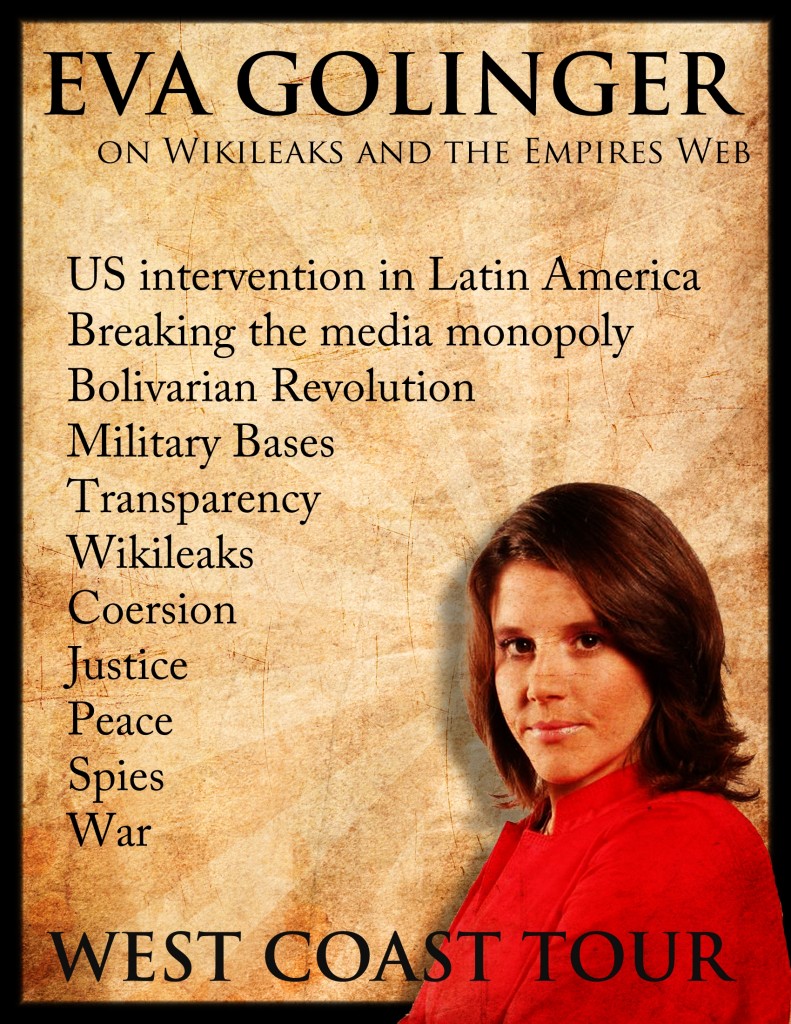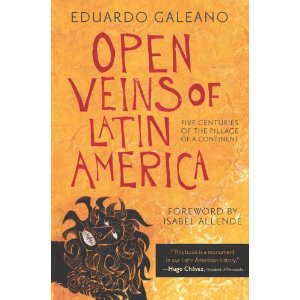Mood:
Now Playing: Ding Dong, the Caudillo's Dead?
Topic: Opposition Opinions
Anti-Chavistas Predictably Respond to Hugo Chavez' Death:
Ding Dong, the Caudillo's Dead?
And Hugo Chavez came to realize that "Third World" conditions in Venezuela must stop, thus his government's social reforms to prioritize the interests/rights of the working class and poor, deservedly so since it is their labor that creates the capital elites/imperial interests, local, and foreign, profit heavily from in the relationship of capital over labor. (Without the latter, the former would never exist.)
It is also Chavez' support for Bolivarian independence, not just for Venezuela but for other Latin American/Caribbean nations, that can contribute to changing the balance of power in the region in a more indigenous-like manner that threatens profiteering. Anti-Chavistas also hate him for this.
But like it or not, Hugo Chavez will be an important and permanent symbol for protecting sovereignty and prioritizing a sustainable equality, not a bourgeois one.
Anti-Chavistas have celebrated the death of their working class enemy, belching out (without saying "excuse me") the usual freedom-loving facade covering imperial relations. Examples within the U.S. were par for the course, whether being patronizing, relieved or joyful. John Grant's piece published in CounterPunch (03/13/2013) called "Hugo Chavez and the Knuckleheads," revealed the enthusiasm of Sean Hannity and Michelle Malkin, both virtually getting off on Chavez' death using their "trademark" cheapshots. Grant also revealed more predictable anti-Chavism within the "mainstream U.S. media."
But it's the usual tiring theme: Chavez the "Tyrant, dictator, authoritarian, Commie," etc., Have they used the “Hitler” label yet?
Meanwhile there's a "fresh face" within the opposition posing as candidate for the Venezuelan presidency: Henrique Capriles. In an interview with Robert Giusti for El Universal (03/23/2013), Capriles echoed the holier-than-thou morality Chavez-haters are fond of, in this case calling his opponent, Chavez-picked Nicholas Maduro, a "fascist in his own right." This basically characterized his responses, which had a rather pretentious tone.
In Elizabeth Malimopoulos' article for Al Jazeera (03/11/2013) about Capriles, the latter portrays himself as a virtual champion of the working class and poor, citing his working class family background. But supporting neoliberal policies will threaten the working class and poor Venezuelans he claims to support. Chavez was and Maduro is working class also, only they tried to actually practice what they preach.
Capriles was, and probably still is, a candidate for the Roundtable of Democratic Unity (MUD, an appropriate acronym?), as reported by Rachel Booth in www.venazuelananylisis.com (08/23/2012). Booth revealed the creating of an economic plan by MUD before Venezuela's 2012 presidential election, of which Capriles ran in, and lost. "The plan includes the deregulation of the banks, opening up the economy to private investment and reduction of state funding for public services and communal projects. There also would be "cutbacks [in] food, housing and transport." This has already proven to be the slippery slope which is austerity, a 19th century-like economic policy. U.S. citizens themselves have experienced it, with the deregulation policies contributing to the 2008 Great Recession.
Booth quoted former governor of Anzoategui David de Lima about MUD's/Capriles' plan: "...there are two discourses, there's the economic discourse used to get votes, and the real one, that aims to place the economic policy of the country back in the hands of two or three sectors that always controlled it." The plan is compatible with Capriles' "upper-class family" owning "major stakes in newspapers, movie theaters and other businesses."
Another characteristic among Chavez-haters is colonial-style racism. Tariq Ali, in his piece, "Hugo Chavez and Me," published in CounterPunch (03/07/2013), asserts:
"Politicians like [Chavez] had become unacceptable. What [Chavez] loathed most was the contemptuous indifference of mainstream politicians in South America towards their own people. The Venezuelan elite is notoriously racist. They regarded the elected president as uncouth and uncivilized, a zambo of mixed African and indigenous blood who could not be trusted. His supporters were portrayed on private TV networks as monkeys. Colin Powell [probably still not learning his lesson about the U.S. GOP and its political nature] had to reprimand the U.S. embassy in Caracas for hosting a party where Chavez was portrayed as a “gorilla."
Chavez is obviously familiar with the racism: "I live here. I know them well."
A Capriles presidency could very well resemble that of Carlos Andres Perez, former president during the 1980s period of boom and bust economics. According to "Health and Liberalism: Venezuela and Cuba" by George Schulyer for the Policies Studies Organization, a government decision in 1983 to devalue Venezuela's currency-to focus on keeping up with the country's debt- fueled an already mismanaged, corrupt and failing economy. Poverty, crime and political instability erupted, inevitably leading to the 1989 food riots. Perez was later impeached.
Despite Capriles' blanket guarantees to reduce poverty, and emphasize education, employment and public assistance for the poor, the chance for neoliberal economics to return would show that his actions speak more truthfully than his words. Capriles is not a friend of the powerless. Perez condemned foreign debt as being responsible for the 1980s turmoil. Yet, he still allowed neoliberal economics to stay in place, which has fueled the debt along with further borrowing just to pay for debt, i.e., more debt paying off debt. Is Capriles like Perez in that regard?
Interim president Nicholas Maduro accused the U.S. of plotting to assassinate Capriles and shift blame on the government. He also accused plotters of contributing to Chavez' death. While this sounds like tabloid gossip, past U.S. actions in other countries have produced similar results.
The United States denied the accusations as “absurd.” But that's been the same line for years, regardless. And the denials have usually been false.
If elected, expect Capriles to follow the old script of imperial and economic subjugation. With Maduro, as with Chavez, in implementing compatible policies, expect a further chance for common Venezuelans to benefit and continuing the Bolivarian objective of sovereignty.
Anti-Chavistas, foreign and domestic, will continue to be haters; but for the sake of their own private interests/monopolies.






